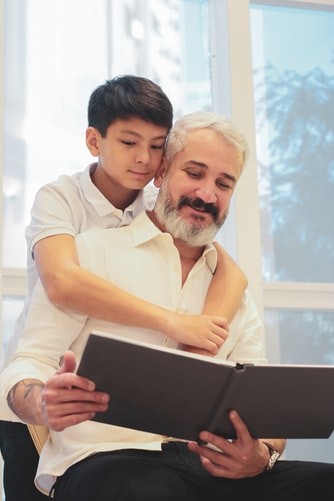
(Photo : Unsplash)
In a perfect world, parents sit down with their kids, talk to them about the birds and the bees (also known as the "sex talk") while their children actively listen and dutifully obey admonishments about sex. Clearly, we do not live in a perfect world.
Today we live in an information age when social views about sex run rampant on every media platform. The internet and social media have given children information at their fingertips about the "new norms" of sex and sexuality. Unfortunately, many of these views can be harmful to your child. Here are a few tips about approaching the delicate subject of sex with your child and how to protect him or her.
Helpful Suggestions to Parents With Sexually Active Children
Perhaps you had "the talk" with your child about sex and the consequences of having sex. You may be shocked to learn your child is sexually active despite all the warnings and discussions you've had with him or her. Try to remember there are a ton of reasons kids may become sexually active under the legal age of consent. The world we live in today forces kids to grow up early and prompts them to make choices that kids 10 or 20 years ago wouldn't even consider. Here are a few tips for handling the sensitive subject of sex and how to protect your child.
Open and Mutual Communication: It's essential to recognize the difference between talking at your kids about sex versus communicating with them about sex. Now more than ever, our kids want their voices and viewpoints heard. The key to effective communication is cooperative listening. Tune in to what your kids have to say regarding their ideas about sex. While communication can be challenging with teens and pre-teens, you can start to make successful inroads when you approach candid communications as a two-way street in which both of you are sharing and actively listening.
The Timing is Always Right: Parents often tell themselves, "I'll have 'the talk' with my kids when the time is right." But in truth, there is no perfect time. Kids are exposed to suggestive, erotic, sexual content at earlier ages now more than ever. So the right time to talk to your kids about sex is early and often. If you think it's too late to have honest discussions with your kids about sex, think again. As a parent, your job is to support and protect your child. Part of that responsibility is never giving up and staying the course of consistent, continuous communication with your kid about safe sex practices.
Tips to Protect Your Children if They are Sexually Active
Kids are curious, and some children are going to explore their sexual boundaries regardless of the consequences. That's why it's important to outline the ramifications of intercourse and illustrate how unsafe sex practices can lead to dire situations. Here are a few tips to prevent harm to your child if he or she is having sex.
Encourage Other Outlets: Telling a teenager, "I forbid you to have sex." is about as effective as wrangling cats. It's just not constructive and can lead to chaos. Instead, try a diversion tactic by engaging your child in other activities, so he or she may find interests outside of the realm of sexual activity. Encourage your kid to expand upon their talents, join your kid in pursuits that you both can enjoy. These efforts may seem like molehills in the face of mountainous issues. However, including your child in immersive, fun, healthy activities can reestablish emotional balance and improve a child's ability to make better choices.
Provide Radical Support: While you may be vehemently against your child having sex, the fact remains, it's happened and may likely happen again. Any parent in this position must eventually face the truth and move forward to protect and support a child in this precarious situation. Youth who are not prepared or uneducated about unprotected sex leave themselves vulnerable to a swarm of challenges that could potentially ruin their future. To avoid negative consequences, continue to educate your child about safe sex practices. In addition, support your kid by providing him or her with prophylactic products and instructions. For example, obtain an at-home STD test or pregnancy test kit, provide condoms, or consider permitting them to use birth control pills, etc. These may seem like radical methods of support, but if your kid is having sex, supporting them with preventative actions can potentially save your child's future and even his or her life.
When 'The Talk' Isn't Enough
If you know or suspect your child is sexually active, it just makes sense to talk to them about it. However, it's crucial to listen to your kids too. The prime key to successful communication is providing kids plenty of opportunities to express their feelings regarding what they're doing and why they're doing it. Of course, if you feel your child is in danger or threatened, always seek advice from mental health or medical professionals.
* This is a contributed article and this content does not necessarily represent the views of hngn.com








